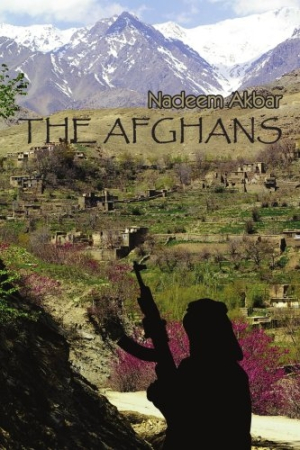The Afghans
A four-star story as good as The Afghans deserves better than a two-star edit. Nadeem Akbar writes in a simple style that is muddied by scores of basic errors—most of them inexcusable typos or obvious mistakes such as incorrect punctuation, inappropriate word choice, or faulty capitalization. Akbar’s book is definitely worth cleaning up.
Setting aside mistakes too numerous and obvious to mention, The Afghans is an excellent, moving, and compelling story of a family torn apart by not one war but three. The thirty-plus years of near-constant conflict that is the tragedy that has become Afghanistan is presented here in a short, tightly written tale of three young schoolboys separated from their parents and each other by the Soviet invasion of their country in December 1979. What becomes of each of them over the next three decades would be enough to fill three novels, yet Akbar manages to condense their stories into a single short volume and does so without giving up the heart or soul of their separate yet interwoven narratives.
While set in a time of war, there is little military action in Akbar’s novel. It is more a story about survival as resistance than about resisting aggression, and more about individuals coping with disaster than struggling against oppression. Although set in modern Afghanistan, in many ways this trio of lost children could be of any nationality, living in any time and in any war. And though Akbar has written an ageless and universal story, she still manages to infuse it with an authenticity and flavor that is thoroughly Afghan.
The charming simplicity of Akbar’s writing makes it both accessible and easily understandable to readers—even those who know little of Afghanistan—age twelve and above. It would have been helpful to such readers, however, had the author slipped in a few more historical details and segues, such as dates when each chapter is set; too often she leaps across the years without alerting readers to the shifts in time.
Akbar’s strong, solid characters and creative yet thoroughly believable plots feel as though they have been based on real people and their true life experiences. As someone of Afghan heritage, it is quite likely the author has met or at least knows of such persons and the trials they have endured. Akbar also manages to capture not just the culture of vendetta but also the spirit of independence that is the Afghan soul—a soul that has frustrated invaders, would-be conquerors, peacekeepers, and nation builders since the days of Alexander the Great.
This last point should be especially instructive to those who have sent and continue to send young men and women into the maelstrom that is Afghanistan. As Akbar points out, even those foreigners with the best of intentions have yet to comprehend that such help is not only unwelcome but seen as hostile by a people who have always only “wanted to be left alone” so they can “find their own road to civilization.”
Reviewed by
Mark McLaughlin
Disclosure: This article is not an endorsement, but a review. The publisher of this book provided free copies of the book and paid a small fee to have their book reviewed by a professional reviewer. Foreword Reviews and Clarion Reviews make no guarantee that the publisher will receive a positive review. Foreword Magazine, Inc. is disclosing this in accordance with the Federal Trade Commission’s 16 CFR, Part 255.

